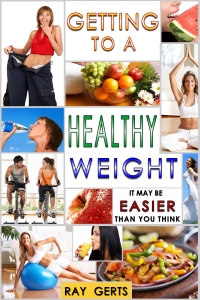Children of long-lived parents are less likely than others to die from heart disease in their 70s, new British research suggests. "We found that for each parent that lived beyond 70 years of age, the participants had a 20 percent lower chance of dying from heart disease." Specifically, the children of longer-lived parents had lower rates of vascular disease, heart failure, stroke, high blood pressure and high cholesterol, the study found. The findings aren't an excuse to turn into a binge-eating couch potato if your mother and father reached their 80s or 90s. Nor are they a sign that those whose parents died early should just give up. On the contrary, your decisions about your health can reverse trends toward the illnesses highlighted in the study, Pilling said.
"Though people with longer-lived parents are more likely to live longer themselves, there are lots of ways for those with shorter-lived parents to improve their health. People can really take their health into their own hands," he noted.
Indeed, the correlation between the lifespans of parents and children is actually fairly weak, said Kaare Christensen, a professor of epidemiology with the University of Southern Denmark. As a result, he said, "there is a lot of room for improvement."
It's known that parents who live a long time are more likely to have kids who live a long time, but Pilling and his colleagues wanted to learn more about this connection -- such as why some people develop heart conditions in their 60s and others don't.
The link between long-lived parents and heart-healthier offspring held even after the researchers adjusted their statistics for factors such as education, age, weight and physical activity. According to the study, some researchers have made similar connections in the past, but they looked at smaller groups of people.
How might genetics explain the lower risk of heart disease in kids of longer-lived parents? Your genetic inheritance from your parents seems to affect blood pressure, cholesterol levels, tobacco addiction, drug and alcohol dependence, and levels of obesity in the participants, Pilling said.
"These are all factors that affect the risk of heart disease," he said. "If you have a parent who died young, it is always good if it can be determined why he or she died very early and whether there is an inheritable disease for which there are treatments," Christensen said. But in general, he said, people whose parents died very early are "not generally doomed." That's because of the "low correlation" between the lifespans of parents and their kids.
I believe that your children inherit your genes in whatever condition their in at the time of conception. I believe your genes will change during your life, depending on your condition. So if your overweight at the time of conception your child may also have that same gene. Of course, if both parents are overweight at the time of conception the child will have a much greater chance that he will suffer from the same obesity gene.
If you really want to lose your body fat than look for my e-books at the websites listed below. You'll get information on Healthy eating, exercise, and diet. Instead of spending hours on the internet reading dozens of posts, you can save time by picking up one of my e-books.
There are two e-books. “How Bad Do You Want To Lose Weight?” is available at all the online bookstores selling for $1.99. Go to any of the websites below and search the title to find my e-book. This book gives you all you need to lose weight without spending money on gym memberships, diet plans or meal plans. Look for my book. at Amazon.com, B&N.com, iBooks, Kobo.com, Scribd.com, or Gardner Books in the U.K.
My new e-book is available on Smashwords.com, just type “getting to a Healthy Weight” in the search box at the top of the home page.






